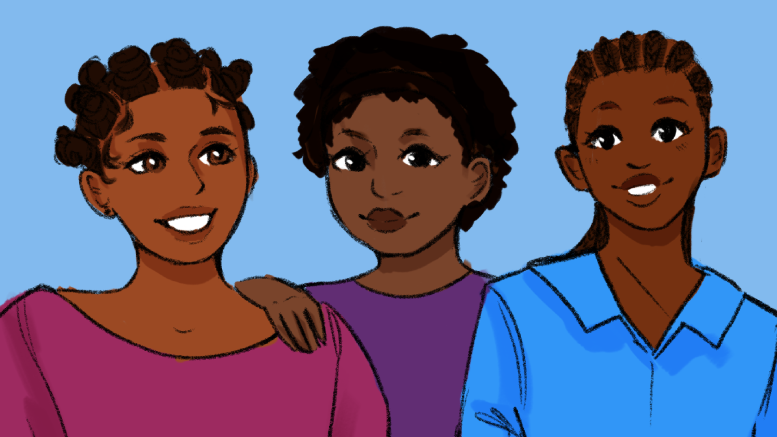One of the consequences of spending extended periods of time on social media is finding yourself on a
completely different side of TikTok than you’re used to. A few weeks ago, I fell into this trap and found myself
on British social media, where I saw a Black man make rude comments about Black women’s hair.
This specific TikTok reminded me of a conversation I had with a friend of mine who braids hair. Over the
weekend, she had agreed to braid the hair of a girl who had been attending her church because she was being
bullied in school for wearing her natural hair.
I wish I could say these incidents were isolated and few and far between, but in many Western societies, Black
women have been ridiculed and judged for their natural hair. Some people believe Black women wearing
natural hair is unprofessional and untidy, while simultaneously holding the belief that wearing extensions or
wigs is a sign of a desire to be a white woman. For Black women, there seems to be no winning when it comes
to their hair.
I think to understand the misconceptions held by society concerning Black hair, it’s important to look at its
history. In pre-colonial Africa, hair had a variety of meanings: there were certain styles to indicate your family
and tribe, styles to show you were royalty, styles for a mother about to give birth and even styles for women
waiting for men to come back from war. Ultimately, hair for Black women was a source of cultural expression
and a form of communication.
During the Transatlantic Slave Trade, hair became one of the tools used to dehumanize Africans. Calling it
unruly and animalistic, Europeans were able to push the narrative that Black people were savages. This
allowed them to treat Black people with inhumanity while avoiding the moral and spiritual repercussions that
would accompany these actions.
Even after the prohibition of slavery, these racist ideas lingered. Laws like the “Tignon Law” in Louisiana forced
Black women to cover their hair in public. Laws like these furthered discrimination against Black women’s hair,
as though it did not belong in the public sphere.
Now, these kinds of discriminatory laws for Black women no longer exist, but I believe the impact they had on
people’s thinking remains. For women of different ethnicities, it is acceptable to wear their hair as it grows from
their scalps, yet for Black women, their natural hair is seen as unprofessional. I would like to dispel this lie.
Black hair is beautiful! For centuries, society has tried to convince Black women that their hair is less than
because it doesn’t fit a Eurocentric beauty standard, but it is unique and gorgeous. Black women should wear
their natural hair proudly, like the crown it is.
If a Black woman chooses to wear braids or extensions, it should be because they feel confident and beautiful
and not because they feel ashamed of their natural hair.
Society should not dictate how Black women feel about their own hair. These ideas around Black women’s hair
have been around for centuries, and being passive will not make them go away. It is important to confront
derogatory ideas in both thought and conversation. Any time you have an insulting thought about your own
hair, or anyone else, ask yourself why. Where do these ideas come from, and how can you combat them? Any
time you hear someone say something unkind about another person’s hair, don’t just think it’s wrong, say
something.
I know at times it might seem extreme to draw so much attention to something as simple as hair, but it’s not
just about hair. It’s about how people view themselves, how for years lies have been used to convince Black
people that they are worth less than their white counterparts. These lies have been fed to Black people who
don’t have Eurocentric features, who are made to believe that they are ugly. It’s important that we challenge
these lies. People deserve to know that we are all created equally. Every race and every hue is beautiful. Our
diversity should be celebrated, not used to bring each other down.

